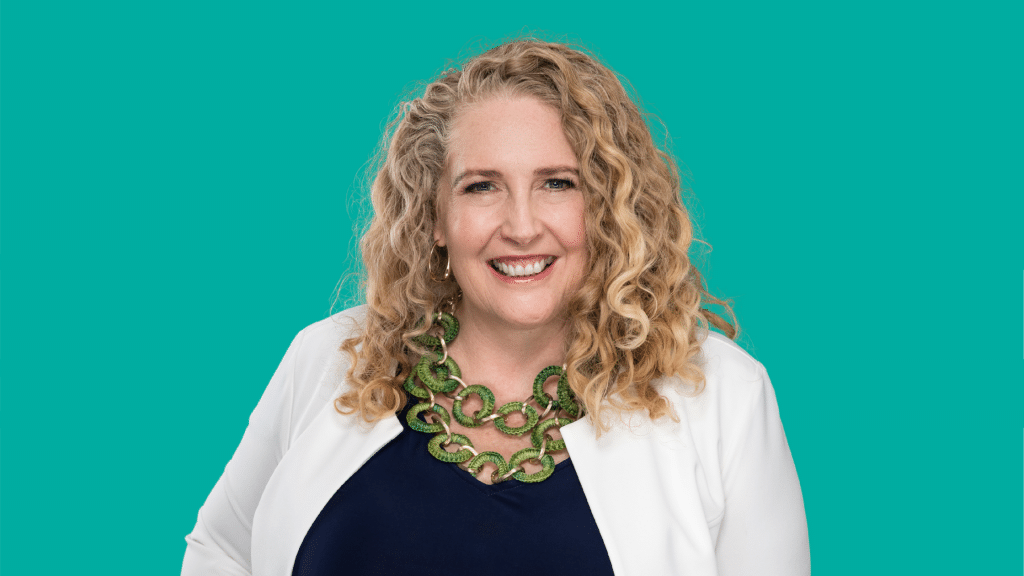As a leader, developing your leadership skills to leave the workplace better than when you arrived can be very satisfying. And, if you are a leader and a parent, you probably feel like you have two jobs.
As a working Mum, whose youngest child recently finished school, I always lived with the pull between the two.
I often felt I was either winning at work or winning at home, but not both.
As a leader and parent, I thought developing my leadership skills would encourage and inspire my children to realise their potential and see the value in living a purposeful life. To do this, I found myself working very long hours, but I also wanted to be there for them at pivotal moments. To help them grow into healthy young adults who live a good life.
At work, I tried to exhibit the qualities of a good leader, manage the wellbeing of teams, and enable a positive culture that delivered the required outcomes.
I continually asked myself, is it possible to be a good leader, perform at the expected level and be a good parent without putting yourself on the road to burn out?
Do Power Moms make better leaders?
I read an article suggesting ‘Power Moms’ make better leaders. After reading it, I could feel my guilt and regret.
The article has a lot to say about the beneficial leadership skills parents can bring to the workplace but is silent on whether trying to be a good leader made these people better parents.
I am curious about those people’s working environment and whether they allowed them to be good leaders and good parents.
As a Mum, I worked in leadership roles for most of my kids’ lives. They are now young adults, and I managed my feelings of guilt by telling myself the quality of the time I spent with my kids could make up for the quantity of time I spent with them. Now, I am not so sure.
And, with hindsight, I do not believe the fault was all mine.
I should have clued in years ago when my husband started referring to me as his weekend wife. I felt defensive and guilty instead of noticing what was going on more deeply – for my employer and me.
In more recent years, he started calling me his Saturday wife.
We also had a constant tussle because he wanted to relax on a Friday night after a hard week at work. But for me, it was my chance to catch up on as much as I could and clarify what I had to do on Sunday, so I was ready when Monday rolled around again.
However, even when overloaded with work, I regularly carved out and protected time to spend with my team, as I knew supporting them to develop their leadership skills was critical to our success. I had seen the impact of too many other leaders dropping one-on-one meetings with their direct reports and failing to connect with people across their larger team.
So, when you try to be a good leader, does it make you a better parent?
It is a challenging question to answer as it forces you to look at yourself as a whole person rather than as a leader or a parent. If I am honest with myself, I would have to say when your team, stakeholders, and the building cleaner and security guard see you more often during the week than your kids; the answer is probably not.
After hiding my feelings of inadequacy for a long-time, I am now kinder to myself.
I have always had high self-expectations, but what I now realise is my employer had unrealistic expectations.
I was not consciously aware of all my inner beliefs and how this showed up in my reactions during extended periods of high work stress. Lack of awareness of these inner beliefs left me ripe for exploitation, even when it was unintentional.
I had one foot flat on the accelerator and did not realise my other foot kept hitting the brake.
My brake was a deep-seated belief I had to roll up my sleeves and share the work burden when the going got tough.
My Dad was a sole blue-collar trader for most of his life. My Mum was the woman behind two men, supporting them to lead a large private company successfully. Both my parents were actively involved in my school and the community.
I was brought up to work hard and support people. To roll my sleeves up and get in and help when the going got tough. I remember my Dad having a work-related accident, taking the minimal time off and hiring an off-sider so he could continue working on crutches.
It is only now I see how these patterns repeated in my own life.
These deep-seated beliefs unconsciously influenced how I reacted when the pressure was on, and it was mostly on.
When a Harvard Business Review (HBR) article came up in my feed, it struck such a deep chord in me. I had to read it to my husband.
It said burnout is about workplaces, not the people.
Did that mean my tendency to be a workaholic was not all on my shoulders?
The article points out the World Health Organisation (WHO) has included ‘burnout’ in its International Classification of Diseases (ICD). This is not because burnout is a medical condition, but because the WHO believes it is an occupational phenomenon.
I already knew I had to work at maintaining my boundaries because I have high empathy for others and a deep sense of purpose and responsibility. It was easy for me to connect with my work’s purpose in the health and social services sector. I was someone who got stuff done, but at a high personal cost.
When I read this HBR article, it was a relief. I had already done a lot of work on myself, and this article was the last nail in the coffin of me realising preventing burnout is not all on the leader.
My first tendency is to assume what goes wrong is my fault, that I should do better and be better. Now, I look at the whole picture. I look at what else contributes to the situation and am more self-compassionate about what I cannot control or influence.
Self-care and self-awareness are essential. However, what you do will only get you so far.
The HBR article I read made me curious. I went searching and found another HBR article from 2017.
Three common culprits
Bain and Company looked inside companies with high burnout rates and identified three common culprits:
- Excessive collaboration
- Weak time management disciplines AND
- A tendency to overload the most capable with too much work.
My subconscious was going ding, ding, ding. It all made sense now.
Bain and Company concluded these three factors rob employees of time to complete complex tasks or generate ideas. They also crunch the downtime necessary for restoration.
The more self-compassionate part of me could see these factors were not about me.
They were about my workplace culture and external and political pressures. The self-critical part of me could see I could have done more to protect my boundaries. Still, my peers and the people I reported to were similarly under pressure, and the workplace culture did not support pushing back on unrealistic expectations.
Preventing burnout is a shared responsibility between the leader and the organisation.
The WHO classification makes it clear employers need to balance their focus between achieving outcomes and managing employees’ wellbeing.
Being an empathetic parent might make you a better leader. However, it can also make you more susceptible to burnout in demanding and resource-constrained work environments.
I was not surprised to read passion-driven and caregiving roles, such as doctors and nurses, are some of the most susceptible to burnout.

When budgets are tight, spending on consultants and coaches often gets cut first. But that is when workloads can skyrocket, and there are fewer people to do the work.
This is why leaders need external support.
Someone who can hold up a mirror so they can see themselves in context. A person who can use a tool like the Leadership Circle ProfileTM so the leader can develop a deeper understanding of how others experience them and how they see themselves.
In my case, I found this extremely helpful, especially when that person was at a distance but understood my work context.
It helped me get perspective and find some self-compassion.
It is crucial to take the time to understand how your inner beliefs might be driving your behaviour as you try to keep everyone happy – people at home, the team, your peers, the boss.
When your foot is flat to the floor, it is hard to find the time and a person who can guide you on a journey of self-discovery that enables you to become the person you ideally want to be. Someone who can support you to recognise and then negotiate and hold boundaries when expectations are unrealistic.
If you see yourself in this blog, please know it can get better. Taking the first step is often the hardest. I took that step and now wish I had done it sooner.
I found the secret was to define who I wanted to be instead of letting events and other people define who I was.
It takes a willingness to dream and take a good, hard look at yourself. Surrounding yourself with people who can help and cheer you on makes it easier. It can be transformational if you are prepared to go through the fire and sit with the discomfort. I have reconnected with the person I used to be and want to be in the future, and you can too if you are ready to take that first step.
P.S. Apparently, I was not a terrible parent.
My son completed The Rite Journey in Year 9, and after going through that process, he decided he had good parents. My daughter likes to point out what we do wrong as parents but generally agrees with her brother. They still want me there when it matters. And, my more compassionate self is ok with that. I take joy in the young people they have become and know my job as a parent is not done.











